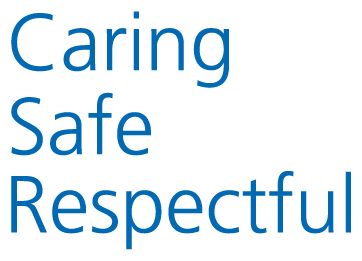The Role of the Speech and Language Therapist
The Speech and Language Therapist works with the people that are in your child’s environment, such as parents/carers, school staff, and other people working with your child, to gather information about how they communicate and relate to others.
We support everyone in the child’s life so that they can deliver the intervention appropriate to the child’s communication needs and embed this within everyday activities and learning environments.
Usually we will see your child within a school setting as this is a familiar and natural environment for the child. When working with your child, assessment may also involve classroom observation as well as any appropriate direct work.
- Advise everyone on how to adapt the way they communicate and interact with the child.
- Advise everyone to make changes to the environment e.g. making it more structured and meaningful for the child.
- Provide training for everyone to support their understanding of the child’s communication difficulties and how to support them within their everyday activities.
- For a small number of children we may offer specific speech and language interventions. We will usually request that a school staff member or parent is available to watch these interventions and carry out practice in-between therapy sessions.
- We may also complete any onward referrals to other services as appropriate.
- As your child has an Education, Health and Care Plan (EHCP) we will usually set the objectives for their EHCP for a key stage, and will give advice and clear next steps of how this can be supported at home and school.
The Speech and Language Therapist will work with your child over an “episode of care”. We will work with parents, carers, school staff and the young person to set appropriate goals and specific strategies. This will be as many interventions as the Speech Therapist feels is necessary to ensure goals and strategies are in place for your child.
We will make sure that everyone working with your child understands how to implement goals and strategies. Once everyone supporting your child (home/school) is confident with using the strategies, the episode of care will be closed as their needs can be fully met by home and school with the given advice.
We would expect both you and other people working with your child to carry out the strategies we have recommended in your child’s everyday life.
When your child has achieved their targets/outcomes and further support from Speech and Language Therapy is needed, we would welcome a new episode of care which can be started via a referral to our team.
In the special school team we see a wide variety of different social and communication needs, including: social communication and interaction, language, speech sounds and stammering (difficulty in producing smooth, fluent speech).
There are now teams to support all of these areas of need who are offering workshops and support, it may be appropriate for you to access a workshop offered by one of these teams to better support your child’s communication need.
Parent workshops include:
- Social – theory of mind, visuals workshop, social stories, comic strip conversations.
- Language – colourful semantics, narrative therapy, blank language levels (question words), vocabulary and word finding, early language.
- Total communication – this may be useful for those children using other forms of communication than verbal speech (augmentative and alternative forms of communication).
- Phonology (speech sounds).
- Stammering.
Training and support to school staff will continue to be given and support may be part of a whole school training session, or whole class training, or individual training.
- We would ensure both you and those working with your child know when to reaccess the Speech and Language Therapy Service for the next episode of care if appropriate.
- Some children may need one episode of care, whereas others may need ongoing episodes of care.
- You should also re-access the service if you have additional concerns, or feel strategies are not effective and you would like some further guidance and support.
Re-accessing our service is easy with parental consent: we accept referrals from parents and other professionals (e.g. school); you can contact us via a phone call to our team, or an email to Children’s Therapy Services. Please also see our website for further information.
The following websites have lots of information for parents, carers and other professionals about different types of communication needs and local SEND services:



